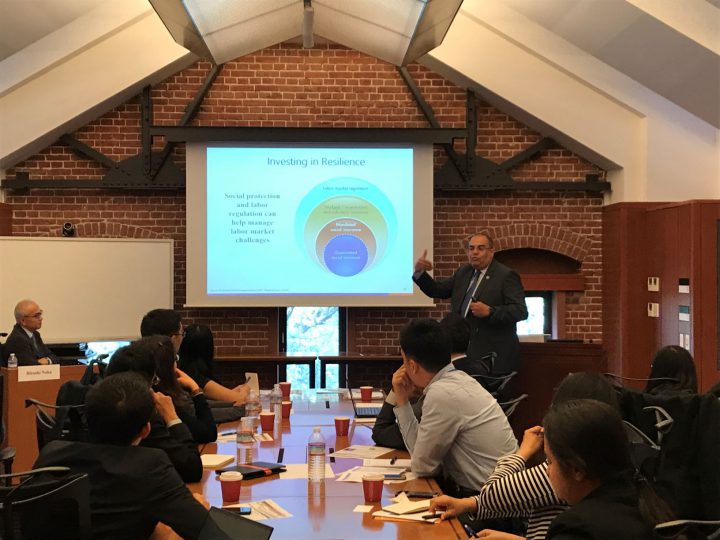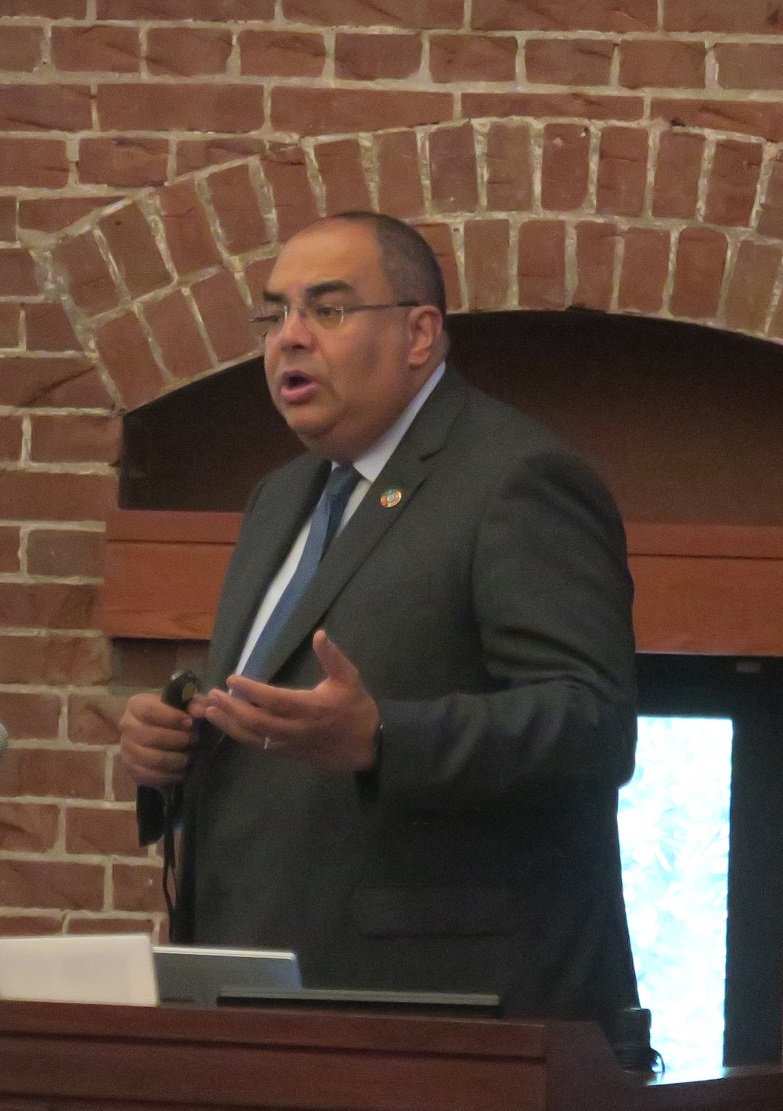持続可能な開発目標(SDGs)の達成に向けて:
世界銀行グループ2030アジェンダ・国連・パートナーシップ担当 マフムド・モヒルディン上級副総裁ラウンドテーブルセミナー

- 【日時】
- 2018年10月18日(木)10:30-11:30
- 【会場】
- 東京大学本郷キャンパス 伊藤国際学術研究センター3階特別会議室
- 【主催】
- 東京大学政策ビジョン研究センター グローバル経済リスクの分析と政策研究ユニット
- 【共催】
- 東京大学公共政策大学院
- 【備考】
- ※本セミナーは、東京大学学生・教職員対象イベントです※
参加お申し込みは、所属・氏名を明記のうえ、pari_tg★pari.u-tokyo.ac.jp(★→@)まで、メールにてお申込みください。
※定員になり次第受付を終了します。
- 【言語】
- 英語(同時通訳はありません)
【開催報告】
A round table seminar with Mr. Mahmoud Mohieldin, World Bank Group Senior Vice President for the 2030 Development Agenda, attracted more than 30 participants at Ito International Research Center on October 18, 2018. The seminar was organized by the Policy Alternatives Research Institute (PARI) together with the Graduate School of Public Policy (GraSPP). The dialogue was opened by introductory remarks by Professor Hiroshi Naka of PARI serving thereafter as the moderator. Following Mr. Mohieldin’s presentation titled “Partnership for the 2030 Agenda: Role of Science, Technology and Innovation (STI)”, participants exchanged opinions on the World Bank Group’s efforts towards achieving sustainable development goals (SDGs). One of the participants prepared a summary as follows.

“It was a great learning opportunity to hear from Mr. Mahmoud Mohieldin, the
World Bank Group’s Senior Vice President, about the seven mega-trends that are reshaping the global society and the role of the World Bank Group in navigating these trends towards the achievement of Sustainable Development Goals by 2030. The talk underlined the three major areas where the partnering nations want the World Bank Group to intensify its efforts to ensure shared prosperity and equitable growth. More efforts are needed to support fragile and conflict- ridden economies, to improve private sector participation in achieving the 2030 agenda, and to ensure that the gender-based barriers are cleared to enable women in exercising their full capabilities. Mr. Mohieldin then identified three main enablers essential in advancing the 2030 agenda. All nations, both developing and developed, are to double their data gathering efforts to identify and promote efficient policies. Private sector capital, skills and resources need to be leveraged on a large scale to complement the scarce public resources. Finally, Science, Technology and Innovation (STI) are to be promoted to ensure efficient implementation of various policies. While engaging with the students and faculty members, Mr. Mohieldin highlighted the need for greater political commitment towards sustainable development, the need for innovative data collection methods, and the need for de-centralized, bottom-up and community-driven action.”
(by Karthik Varada from Graduate School of Engineering)
 東京大学政策ビジョン研究センター
東京大学政策ビジョン研究センター